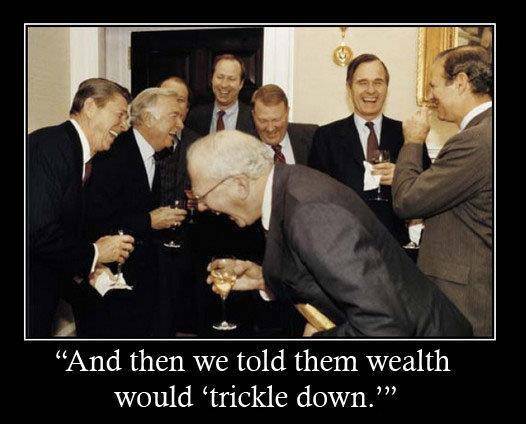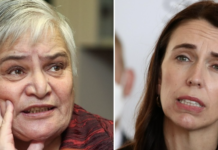As the Reserve Bank winds down its money creation programme (Quantitative Easing) some economists and commentators are calling for a return to orthodoxy – as if the economic regime that was being followed in the run up to 2020 was somehow delivering better results for the majority of people.
They either have short memories or simply don’t have anything better to offer.
It wasn’t.
A quick glance at annual reports from the Salvation Army, Monte Cecelia Housing Trust, Child Poverty Action Group and many others painted a dismal picture of growing inequality, increasing poverty, and rising homelessness.
None of that has improved since. It’s got worse, but it was going to under ‘orthodoxy’ anyway, the Covid 19 effects have simply amplified it.
Matthew Hooton is one of those commentators. I recall a candidates meeting last election where, as one of the guests, he smugly tried to trip me up with what he thought was a curly economic question. He lost.
He calls for a return to orthodoxy arguing that the “extraordinary success of the Reserve Bank Act 1989 in killing inflation means an entire generation have never experienced how evil it is”, going on to suggest that then governor Don Brash beat inflation in the early 1990s.
Since the whole world achieved that status, Brash can hardly be credited with being the slayer of the inflation dragon and nor can the Reserve Bank Act 1989.
The government owned Reserve Bank currently owns around 60% of the debt the government has incurred through borrowing. It has done that through a process known as Quantitative Easing. In layman’s language, digital money printing to buy that government debt off the commercial banks.
Because of the crazy money-go-round it’s used, it has cost taxpayers billions in premiums over and above the price of the actual debt. At least the interest payments taxpayers are funding on that 60% of government debt is now going to the Reserve Bank.
That interest will be funnelled back to the government, which owns the Reserve Bank, as profit for it to spend – instead of into the pockets of the overseas shareholders of the commercial banks (Bank of America and Chase Manhattan for example) that it would normally go to.
Why would anyone want to return to orthodoxy with its worsening inequality and with taxpayers subsidising the profits of those commercial banks – unless of course one had shares in the commercial banks or was an economist working for one.
Don’t forget the government has $40 billion that it’s already borrowed (which taxpayers are paying interest on) sitting in an account at the Reserve Bank – so it really doesn’t need to borrow more.
Perhaps it should send that back to the commercial banks that created it out of thin air in the first place, as they do with all money they lend, including for mortgages, overdrafts and businesses.
How much better for the country would it have been to follow the advice of the jointly prepared Treasury and Reserve Bank aide memoire the government received in May last year.
That report pointed out that it would have been much more efficient for the government to avail itself of ‘direct monetary financing’ – the Reserve Bank creating money (exactly what commercial banks do remember, when lending to borrowers) and putting it straight into an account for the government to spend.
That would have avoided the drain on taxpayer money being used to pay interest to commercial banks, and even the need to repay the sum borrowed.
After all, if the government is borrowing from its own bank, neither would be absolutely necessary.
Of course it could borrow from its own bank and to give the illusion of orthodoxy, pay interest and the original sum borrowed – effectively, as economist Ganesh Nana said, back to itself.
Either way the government would have billions to spend on hospitals, infrastructure like water and waste water, houses for those currently residing in motel rooms, and really alleviating poverty instead of giving lip service to doing so.
The Minister of Finance preferred to ignore that advice, largely because he wants to out-national National and establish himself as the new holder of the ‘rock star economy” title rather than doing those things which would benefit thousands of New Zealanders.
Falling into the trap of returning to orthodoxy won’t fix any of those issues. Orthodoxy hasn’t in the past and there is nothing to indicate it can or will in the future.
Returning to it would be like going back to the horse and cart, rather than revelling in the freedom that the new unorthodox internal combustion engine conferred on our forbearers of the early 20th century and eventually a transport fleet of EV’s or hydrogen powered vehicles on those living in the 21st.
I don’t know what those commentators drive, but I’ll bet they wouldn’t swap it for a horse and cart.
Chris Leitch is the leader of Social Credit.






You know Chris I found out an interesting thing about inflation when I doing history papers at university.
The hyper-inflation of Germany’s Weimar Republic is always given as totally negative and it was truly traumatic for those who lived through it.
However there are some things I never knew about it such as:
1920s Germany had near full employment( in contrast to other nations including New Zealand). Keeping the exchange rate low meant German exports were cheaper than their competitors and throughout the hyperinflation period German industry produced exports worldwide.
The Versailles treaty demanded reparations from the Germans and the set amounts could be paid for in useless paper( eventually enraging the French to the extent they occupied the Rhineland).
In New Zealand’s case I also found that World War II was paid for by credit reform WITHOUT BORROWING. Inflation was controlled by government regulation. Speculation in rising land prices was prevented and food prices were controlled. In a word -SOCIALISM.
New Zealand ended the war years debt free – in contrast to Britain which relied on orthodox economics and was mired in debt and stagnation for years.
And they ridiculed the poor old Social Creditors.
So true Kiwijoker, and they still do. Social Credit’s so called ‘Funny Money’ seems a lot sounder than what we currently have: foreign banks controlling our money supply. We are merely serfs working for overseas landlords.
The infuriating thing is that Social Credit is proved as successful in providing goods and services to the majority of the population but no modern government can be forced to adopt it.
Perhaps the key to that ”successful in providing goods and services to the majority of the population’.
It does not do much for bankers or speculators and as long as we have capitalism these people are our real government. Those elected to parliament are just their puppets.
The other annoying thing is that Social Credit faded as a political force in the years before MMP could have given it a significant presence in parliament. As I recall Social Credit, on occasion, got over twenty to twenty seven percent of votes but because of the ‘First past the Post’ system could never get more than one member of parliament.
Make Social Credit great again.
AO/NZ Farmers earn our foreign exchange, which in turn must be laundered by minions to bigger minions still to run our AO/NZ as modestly as possible lest their highly lucrative and blindingly easy scams, both current and historic, be up.
That’s why grotesque wealth in Remuera and even more grotesque poverty in Otara.
To me, as a farmer, it’s blindingly obvious what’s going on but to most of the rest of everyone else it’s obviously invisible.
The mysterious, elusive ‘Middle People’ exist within a zone of invisibility. In there, they pay fuck all taxes, drain our economy empty and destroy our fragile society and no one can see them. All we can see is the impact they have on our communities. Aye Boys?
In a film ( Sherlock Holmes. ) I watched recently the lead character camouflage himself by painting himself to look like the chair he was sitting in, in front of a large bookshelf.
That’s what The Boys have done. They’ve camouflaged themselves with knighthoods, grandiose social grandstanding and have surrounded themselves with greedy idiot politicians who are merely all bought and paid for mouthpieces to a corrupt system that’d be illegal virtually anywhere else in the democratic world.
The other outrageous thing to ponder of a winters evening is that AO/NZ’s corrupt woes can only be addressed by those whom earn our money. That’s right. Our farmers. Only farmers have the collective financial clout to trounce, by withholding it, the old, white, riche oiks.
‘riche oiks?’ you mean these things?
The Lord of the Rings – Meat’s Back on the Menu
https://youtu.be/ufFOghMt1yI?t=3
100% to Chris Leitch, anyhow’s. this is part and parcel of the way we need to travel. A good article highlighting the basis of Keynesianism and the era of Savage and John Lee. We need more of this. Much, much more.
Comments are closed.